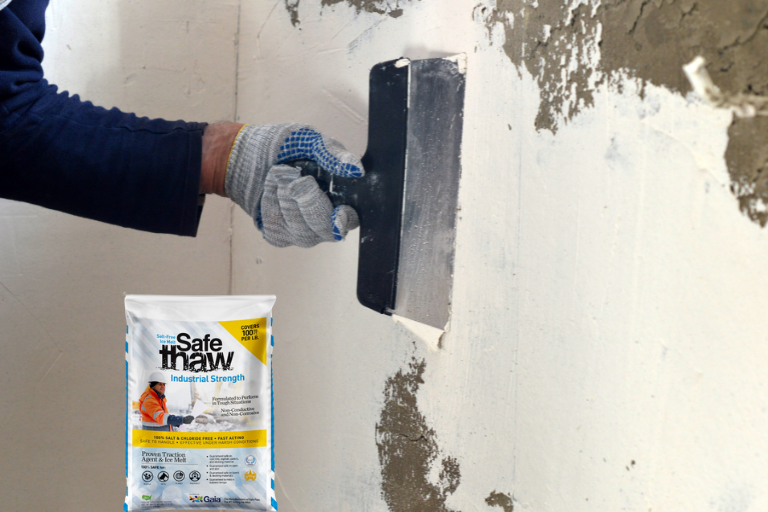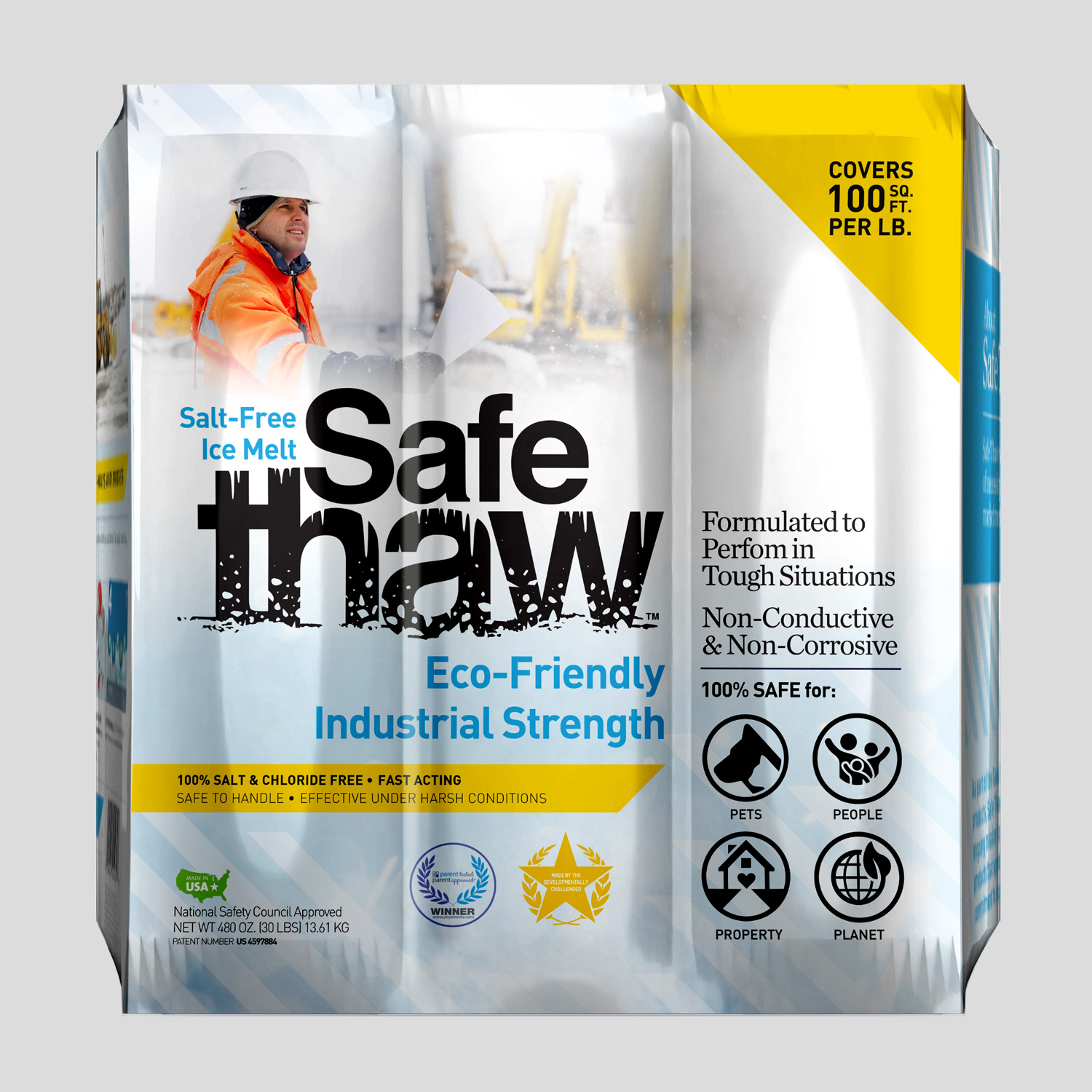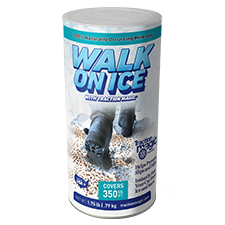Weighing Benefits: Concrete Driveway Vs. Asphalt

When considering a new driveway, homeowners often grapple with the question: Which is better, a concrete driveway vs asphalt? Both materials offer unique advantages, and the best choice depends on your needs, aesthetic preferences, and budget. In this detailed comparison, we’ll explore the benefits of each, so you can make an informed decision about which is right for your home.

Blizzards Are Here—Stock Up on Safe Thaw Today!
Safe Thaw was created as the ice management solution for tough winter environments. Ideal in commercial and industrial properties, shops, government agencies, bridges, and construction.
Lifespan And Durability: Concrete Driveway Vs Asphalt
Concrete driveways, when properly maintained, can last up to 30 years. They resist the wear and tear from vehicles and can handle heavier loads without buckling or cracking. However, they might develop minor cracks over time, especially in areas with drastic temperature fluctuations.
On the other hand, asphalt driveways typically have a shorter lifespan, averaging around 20 years. However, they’re more flexible than concrete and can handle the expansion and contraction caused by changing temperatures. This flexibility means they’re less likely to crack under pressure.
Winter Storms Are Here!
Stay Safe with Our 100% Salt And Chloride-Free, Pet Safe Ice Melt.
Winner: In Terms Of Lifespan, Concrete Takes The Lead.
Cost and Installation
Generally, asphalt or concrete driveway installations have different cost implications. Asphalt driveways tend to be more budget-friendly initially, with the average cost being lower than that of concrete. The installation is quicker because asphalt sets faster than concrete. This means you can use your driveway sooner after it’s been laid.
Conversely, while concrete driveways may have a higher initial cost, they might offer savings in the long run due to their longevity and less frequent need for repairs.
Winner: For upfront savings, asphalt is the go-to, but for long-term investment, concrete may edge out.
Maintenance And Repair
Asphalt driveways require regular maintenance. Sealing should be done within the first year of installation and then every 2-3 years afterward. This sealcoating protects the surface from water, oil, and UV damage.
Concrete, while durable, is not maintenance-free. It might require sealing to prevent water absorption and staining. However, this sealing isn’t as frequent as with asphalt. When cracks appear, concrete can be harder and more expensive to repair than asphalt.
Winner: Asphalt requires more regular upkeep, making concrete the winner in the maintenance category.
Aesthetic And Customization
Concrete shines in the aesthetics department. It offers a range of customization options, from staining, stamping to other decorative treatments. You can tailor its look to complement your home’s exterior or mimic more expensive materials like brick or stone.
Asphalt, while sleek with its dark appearance, doesn’t offer as many customization options. Its look is generally uniform, which some homeowners might find limiting.
Winner: For those looking for aesthetic versatility, concrete is the clear victor.
Climate Considerations
In colder climates, asphalt might be a better choice. It’s black, so it naturally absorbs and retains more heat. This characteristic means that snow and ice melt faster on an asphalt driveway than on a concrete one.
However, in hotter climates, asphalt can become soft, making it susceptible to rutting and other damages from heavy vehicles. Concrete remains sturdy, regardless of the temperature.
Winner: Asphalt for colder climates; concrete for hotter ones.
Environmental Impact And Safety
Concrete is reflective, meaning it can help in reducing the urban heat island effect in densely populated areas. It’s also less likely to get soft and sticky in high temperatures, reducing the risk of tripping or slipping.
Asphalt, being darker, absorbs more heat and can contribute to the urban heat island effect. However, when it comes to melting snow or ice, its heat-absorbing properties can be an advantage. To ensure safety in icy conditions, using an effective ice melt is crucial. Safe Thaw, a chemical and toxin-free, industrial-use ice melt, is a recommended choice. Its granular formula ensures a slip-free driveway, whether you have asphalt or concrete.
Winner: A tie, with both materials having their pros and cons.
100% Salt & Chloride-Free Ice Melt for Winter Storm Protection.
Conclusion
The debate between concrete driveway vs asphalt doesn’t have a one-size-fits-all answer. Both materials have their merits. Concrete’s longevity and aesthetic versatility might appeal to some, while others might prefer the initial cost savings and warmth of asphalt. Assess your specific needs, budget, and local climate to make the best choice. And regardless of your decision, remember to stock up on Safe Thaw ice melt to ensure a safe and slip-free surface in winter months.
Try Also Our Other Winter Safety Products:
Safe Paw
The Original and #1 Selling Pet and Child Safe Ice Melt for over 20 years. Guaranteed environmentally safe –It won’t harm animals or children, and it won’t damage your property. That’s Safe Paw. Safe Paw can change how winter affects our planet.

Walk On Ice
The handy disposable canister can be taken everywhere, with the same 100% naturally occurring minerals that provide instant traction on ice or snow. Use it on sidewalks, steps, or as an instant traction agent for your car.



